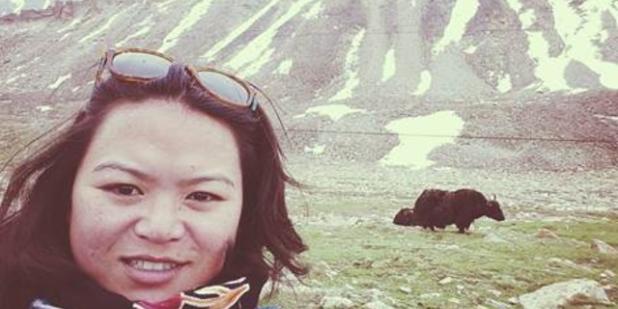Join us for a free one-day workshop for educators at the Japanese American National Museum, hosted by the USC U.S.-China Institute and the National Consortium for Teaching about Asia. This workshop will include a guided tour of the beloved exhibition Common Ground: The Heart of Community, slated to close permanently in January 2025. Following the tour, learn strategies for engaging students in the primary source artifacts, images, and documents found in JANM’s vast collection and discover classroom-ready resources to support teaching and learning about the Japanese American experience.
The Discursive Art of China's Colonialism: Reconfiguring Tibetan and State Identities
Lecture by Dawa T. Lokyitsang (PhD candidate of cultural anthropology, University of Colorado, Boulder).

How do present forms of colonialisms persist in what is presumed to be the ‘post’ colonial era? One-way colonialism persists in the current era is through the state’s ‘modification’ of its identity according to Indigenous studies scholar Glen Coulthard (2014). Scholars of Empire studies have long stressed how the colonial state constructs its own identity in the process of constructing the identities of its colony and subjects (Cooper and Stoler 1997, Stoler 2010). In this presentation, I consider this question through the framework of Tibet and China and ask, how is China’s current relationship to Tibet understood as state and subject, rather than colonizer and colonized? In the following, I suggest this in part has to do with how Tibetans are understood to be ‘Chinese’ in the present moment. Through a careful examination of China’s different and successive government’s discursive and rhetorical mechanisms, I explore how Tibetan identity is reinvented and state identity modified to construct Tibet in China’s national imagination as part of China. Such reconfiguration of identities, which centers the history of Tibet’s development through Chinese frameworks rather than Tibetan ones, function to counter and erase past and ongoing histories of Tibetan nationalism that continually challenge China’s sovereign claims over Tibet. The discursive ramification of such state-produced historical erasures and identity reconfigurations is that it allows modern nation states such as China to operationalize systematic colonialisms in its colonies while distancing itself from its colonial identity. This is how present forms of colonialisms under new modern orders continue to function anew in what is presumed to be the ‘post’ colonial era.
Dawa T. Lokyitsang is a PhD candidate in the field of cultural anthropology at the University of Colorado Boulder, USA. She is currently in the midst of her dissertation research on the establishment of sovereignty in exile by the Tibetan refugee collective through the development of their own educational institutions in India. In addition to her research focus, she is also interested in and has written about ways of belonging that are racialized, gendered, and classed within the Tibetan diaspora community. Lokyitsang is also concerned with questions of Chinese colonialism in Tibet, Chinese imperialism more broadly, and the need for decolonizing as a necessary praxis for articulating and counteracting the ongoing structural life of China’s colonial and imperial occupation of Tibet and elsewhere. Her scholarly writings have been featured in Lexington Books with forthcoming work with Oxford University and Duke University press. Occasionally she writes for Lhakar Diaries. Lhakar Diaries is also where you will find most of her work.
Click here to register (Zoom)
Sponsor(s): Program on Central Asia
Featured Articles
Please join us for the Grad Mixer! Hosted by USC Annenberg Office of International Affairs, Enjoy food, drink and conversation with fellow students across USC Annenberg. Graduate students from any field are welcome to join, so it is a great opportunity to meet fellow students with IR/foreign policy-related research topics and interests.
RSVP link: https://forms.gle/1zer188RE9dCS6Ho6
Events
Hosted by USC Annenberg Office of International Affairs, enjoy food, drink and conversation with fellow international students.
Join us for an in-person conversation on Thursday, November 7th at 4pm with author David M. Lampton as he discusses his new book, Living U.S.-China Relations: From Cold War to Cold War. The book examines the history of U.S.-China relations across eight U.S. presidential administrations.




